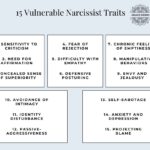What’s The Difference Between Codependency VS Love?
If you’re the type of person that loves your partner so dearly that you forget yourself in the relationship, keep on reading. This article is for you! Codependency can feel a lot like love. Many people mistake their intense feelings as passionate love. So what’s the difference between codependency vs love?
Being codependent on your partner does not necessarily mean that you are in love. This doesn’t mean that if you’re codependent you don’t love your partner. But your codependent tendencies could get in the way of your personal development as well as your partners’.
Codependency can also push your partner away from you due to unhealthy behavioral patterns and the way you communicate in the relationship.

Let’s explore what codependency means and the difference between codependency vs love.
What is codependency?
Codependency in relationships is a form of emotional dependency on your romantic partner. Codependents usually have low self-esteem and seek validation from their partner. They tend to neglect their own feelings and needs to attend to their partners’ needs, even if it is inconvenient to them. They have this urge to please others and to feel needed.
Codependents might not be aware of their people-pleasing tendencies. They are kind, nurturing and highly empathic people. However, their need to please others and ‘save’ others, does not reflect a healthy relationship with themselves. They do this based on feelings of insecurity, lack of autonomy, fear of abandonment in relationships, and a sense of inner emptiness.
These qualities make codependents more susceptible to end up with narcissistic partners and toxic relationships. Narcissists seek partners who they can take advantage of and provide them with narcissistic supply. So codependents are the perfect prey to them.
Even if your partner is not a narcissistic sociopath, codependency can be toxic and is different from love. Let’s explore the main differences between codependency vs love.
Related articles: What Is Fear Of Abandonment? | How To Overcome Fear Of Abandonment
What are the main differences between codependency vs love?
Toxic codependency can get in the way of your relationship, even if you and your partner love each other. By becoming aware of codependent traits, you can reflect on your relationship and see whether you are operating from a place of fear and insecurity (codependency), or from a place of love.
Codependency VS Love In Relationships
| Codependency (Toxic) | Love (Healthy) |
|---|---|
| -Needy | -Autonomous |
| -Controlling & clingy | -Gives freedom |
| -Judgmental | -Non-judgmental |
| -Suspicious | -Trustful |
| -Neglects self-needs | -Respects & honors self-needs |
| -Dependent | -Self-reliant |
| -Anxious, exhausted, irritated | -Calm, joyful, energized |
| -Tries to change their partner to the ideal partner | -Respect and learn from each other’s differences |
| -Doesn’t leave space for growth | -Supports growth & personal development |
| -Feels resentful & unloved | -Feels loved & accepted |
What is the root cause of codependency?
Having self-negative beliefs from childhood is one of the root causes of codependency. These beliefs can be very subtle as they are stored in your sub-conscious mind and affect your thoughts, feelings and actions. You might not be aware of these inner beliefs but they dictate what kind of choices you make and how you perceive the world around you.
People with toxic codependency traits most likely have insecure attachment styles. Attachment styles are formed during infancy and define how we interact and communicate in romantic relationships. The four types of attachment styles according to attachment theory are:
- secure
- anxious-preoccupied
- dismissive avoidant
- fearful avoidant (disorganized)
The only secure attachment style is the first one. The other 3 attachment styles are likely to be present in people with codependency.
Codependency can also be learned during your childhood. If your parents or caregivers portrayed codependent traits, you learn these behavioral habits and you are more likely to develop codependency.
Family enmeshment can also be linked to the root cause of codependency. When family members lack boundaries, they find it difficult to be assertive and learn how to express their needs and feelings. Enmeshment can be confusing and leads to emotional dependence. Children need to learn how to differentiate themselves from their parents and recognize themselves as individuals. The same applies for the parents. Enmeshment in families leads to lack of self-reliance and autonomy which inhibits personal growth.
Related: How To Break Codependency
What is love?
Healthy authentic love is only possible when you learn what it means to really love yourself. A person who truly loves himself is not needy in a relationship. Self-love enables you to love someone not because you need them, but because you choose to be with them. On the contrary, codependents need to be with their partners and fear being alone.
In a healthy loving relationship the below qualities are present:
- space for openness and vulnerability
- acceptance of differences
- respecting boundaries
- supporting personal growth
- intimate connection
- ability to fulfill partners’ needs without self-neglect
- authentic and unconditional love
- appreciation and equal support
Related articles: Interdependence VS Codependency
How to recover from codependency and move toward healthy love?
If you have noticed that you have codependency, keep in mind that you can overcome it. In order to have healthy love in a relationship, one must be able to fulfill his or her own needs first.
Self-awareness and mindfulness is key. By becoming aware of your thoughts and behavioral patterns, you will be able to change them. Mind modality techniques like Mindfulness Cognitive Behavioral Therapy and repeating affirmations can help you change your behavioral patterns and break free from codependency.
It’s understandable that at first it will feel uncomfortable as you need to train your mind to think differently. But trust me, it’s truly worth it seeing how this emotional and behavioral condition affects your ability to develop healthy loving relationships.
Related article: How To Fix Codependency | Codependency Affirmations
FAQ
Codependency can feel like love but is not true love. It is an emotional addiction that can cause turbulence in your relationships. Codependency is based on feelings of insecurity, fear of abandonment, lack of self-worth and low self-esteem. Codependent traits can be changed. Self-awareness is the first step toward creating change in your relationship dynamics.
Toxic codependency in relationships includes clinginess, controlling issues, lack of trust and lack of self-reliance. These qualities negatively affect the relationship with self and others. A codependent person prioritizes their relationship over anything else including their own well-being.







